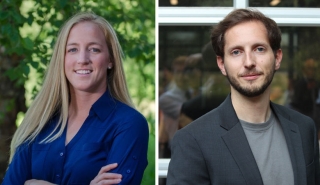Knauss legislative fellowships in Congress help build careers — and they're fun and educational. See our video and fact sheet for details.
Maryland Sea Grant Welcomes Two State Science Policy Fellows
Michael Macon says science policy is like a puzzle—and it’s one he’s ready to piece together. Macon grew up in Maryland and has always been a fan of the water. He followed that passion to Coastal Carolina University, where he studied marine science and mathematics. Macon recently wrapped up an environmental policy and management master’s degree at the University of California, Davis, before moving back east to begin a State Science Policy Fellowship with Maryland Sea Grant.
“I think it's really important as a scientist to be involved with developing policy,” says Christine Knauss, PhD, another State Science Policy Fellow who joined Maryland Sea Grant in September. Knauss first learned about microplastics while studying chemistry and biology at the University of Maryland, College Park. She’s been digging into the plastic pollution issue ever since.
Modeled after the Knauss Marine Policy Fellowship, the State Science Policy Fellowship pairs postgraduates with state agencies that bridge the fields of science and policy. For the next year, Macon will work with the Department of the Environment and Knauss with the University of Maryland Center for Environmental Science.
In interviews, Knauss and Macon shared their thoughts on science policy and what they hope to take away from their fellowships. These interviews have been condensed and edited for clarity.
Christine Knauss
How did you get interested in microplastics?
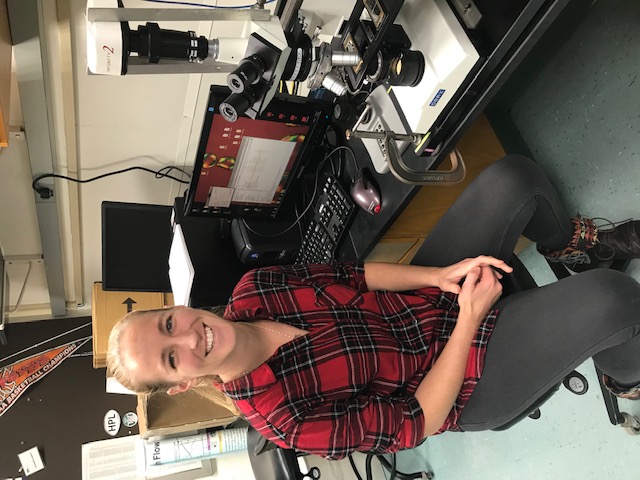
I first got interested in studying plastic pollution through a scientific writing course. We were learning to write memos for an office, and the project was to tell our fake boss if we should use paper or Styrofoam coffee cups. It was 2012, so there wasn’t a whole lot of research yet, and I found sort of the beginnings of the plastic pollution problem. I thought, this is going to be a really cool, really big issue. That kind of shaped where I went after that.
After undergrad, I came to Horn Point Laboratory and worked as an intern in the oyster hatchery. I ended up staying to work on a PhD focused on how microplastics affect oyster larvae and if that was something we need to be concerned about for the Chesapeake Bay and the restoration of oysters. I spent six years doing that, and then I developed another project and applied for funding as a postdoc. So, I’m still working on method development for microplastics, and now I’m a fellow.
What is it about science policy that interests you?
Especially for things like plastic pollution and climate change, where there are a lot of nuances and very complex issues, the scientists who do the work are the most primed to correctly communicate what it means in a broader context and how we should develop policies based on that science.
Have you had any previous experience in science policy?
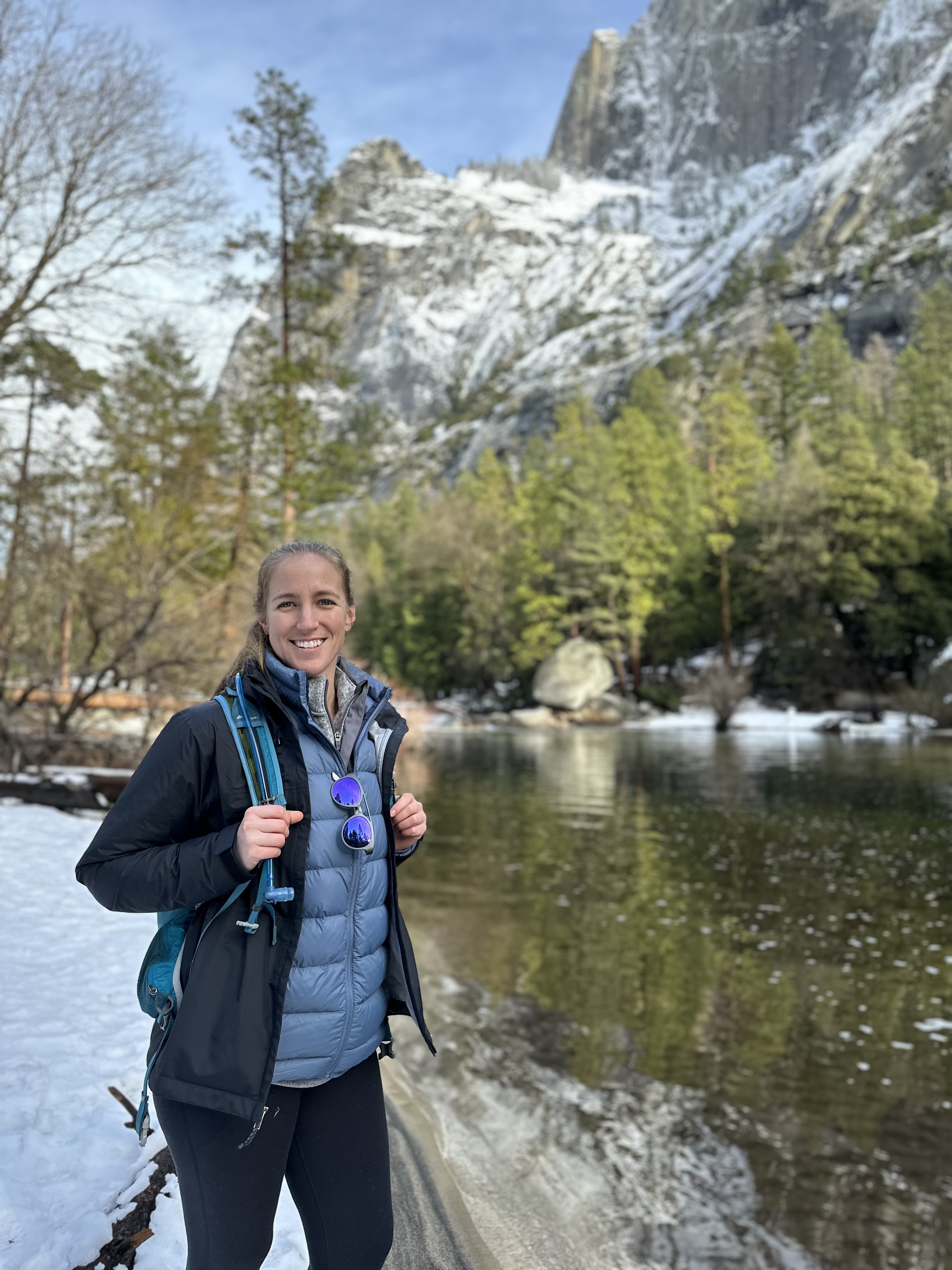
I worked with the Maryland Public Interest Research Group as a graduate student. We wrote and submitted a carbon neutrality bill for the University System of Maryland to the state legislature in 2021 and 2022. It was a great learning experience to see the inner workings of our state with proposing and making laws. It was encouraging, the connections we were able to make with legislators. Even though our bill didn’t pass, it was very motivating. And I'm happy I got to have that experience with a lot of other young, driven, really smart students.
What advice would you give to other scientists interested in getting into policy?
There are so many opportunities to get involved in helping with policies or management, even on very small scales—local, regional, state. I helped write a letter of support for a town to ban plastic bags. Lots of people are looking for expert knowledge to help them do different things in policy. I'm sure there are many opportunities in all different kinds of fields.
Do you find you have to take your scientist hat off when working with legislators?
You definitely have to change your approach, vocabulary, and the detail of what you share versus talking to [another] scientist. Legislators are incredibly busy. They have a lot of different things they need to think about. If you come in with almost a business pitch—these are three things you need to know, it matters because of this, and it’s going to help your constituents because of this—if you make it very clear and organized for them, I think that’s how I’ve found the most success.
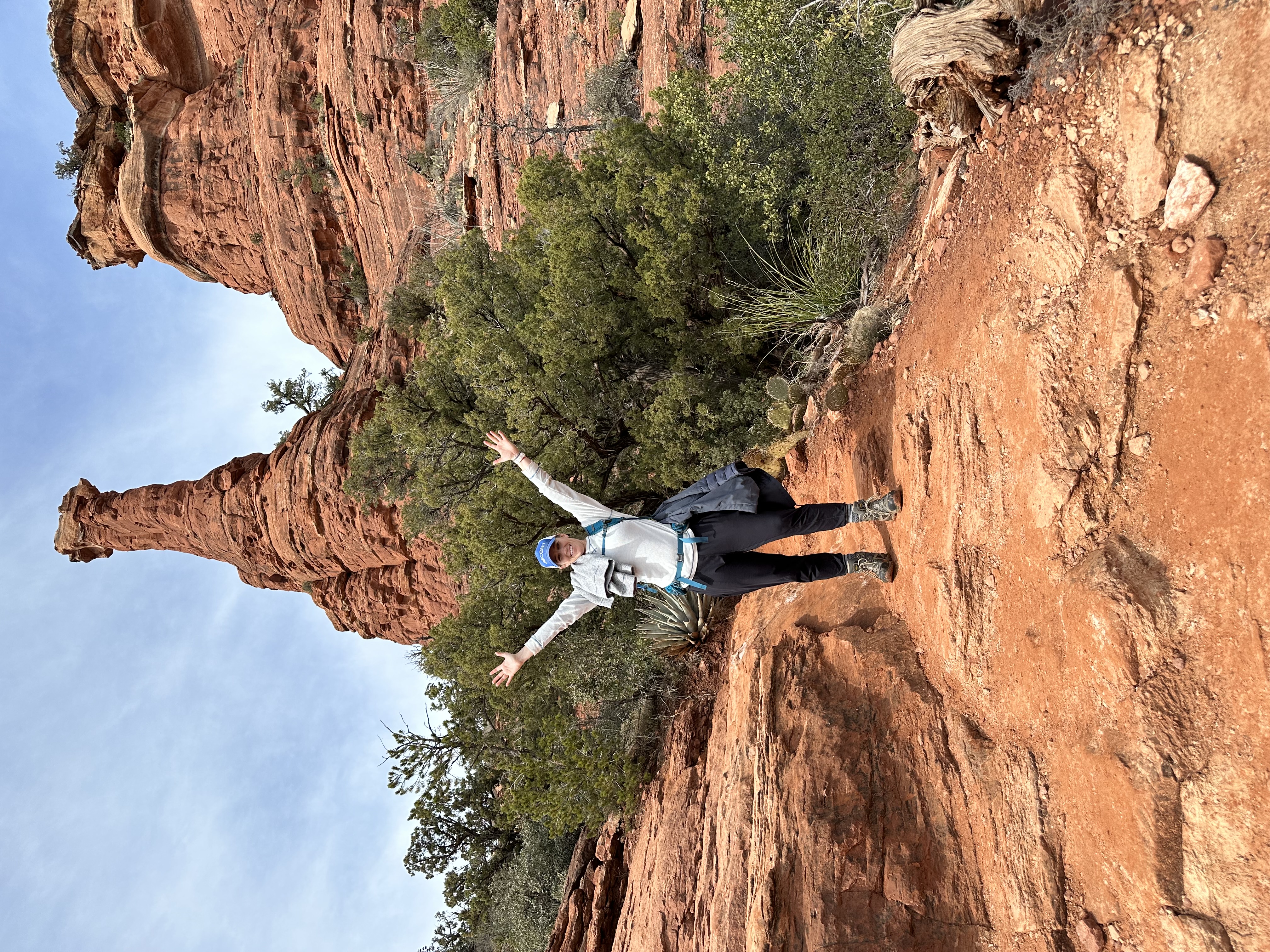
What do you hope to gain from this fellowship, and what projects will you be working on?
I think just a very different experience than I’ve had previously. I’ve had a bit of experience submitting bills and testifying, but I haven’t really seen how they do things from the legislator side. I’m especially excited about sitting in on the Maryland Commission on Climate Change meetings to see at a high level what the state is doing to mitigate and prepare for climate change. The interim president of the University of Maryland Center for Environmental Science, William Dennison, chairs the science and technical working group for the commission. I’ll be helping to run those meetings and support everything that group does.
Another big project I’ll be working on is starting to include microplastic metrics in the Chesapeake Bay and Watershed Report Card, which is produced by the Integration and Application Network. Microplastic metrics haven’t been included in the past because there was not enough agreement in sampling or analysis methods, or enough comparable data. The field is advancing quickly, so I think now is the right time to build the framework to include this information. Microplastics are complex, so we’ll have to be very thoughtful about how we do it. I’m excited to work on this, because I’ll get to learn a lot about the process for putting together these report cards, and I think it’s a good place for my expertise.
Where do you see yourself in the future?
One of my goals is to work on microplastics and international policy and management, maybe at the United Nations Environment Program. So, this is great experience toward that. I like having a foot in both science research and policy. I think it’s important to stay current with top methods and information in the field and be able to then talk about those things in a useful way in the policy sphere. And I’d like to move out of the country. People are working on the plastic issue everywhere, and I really enjoy traveling.
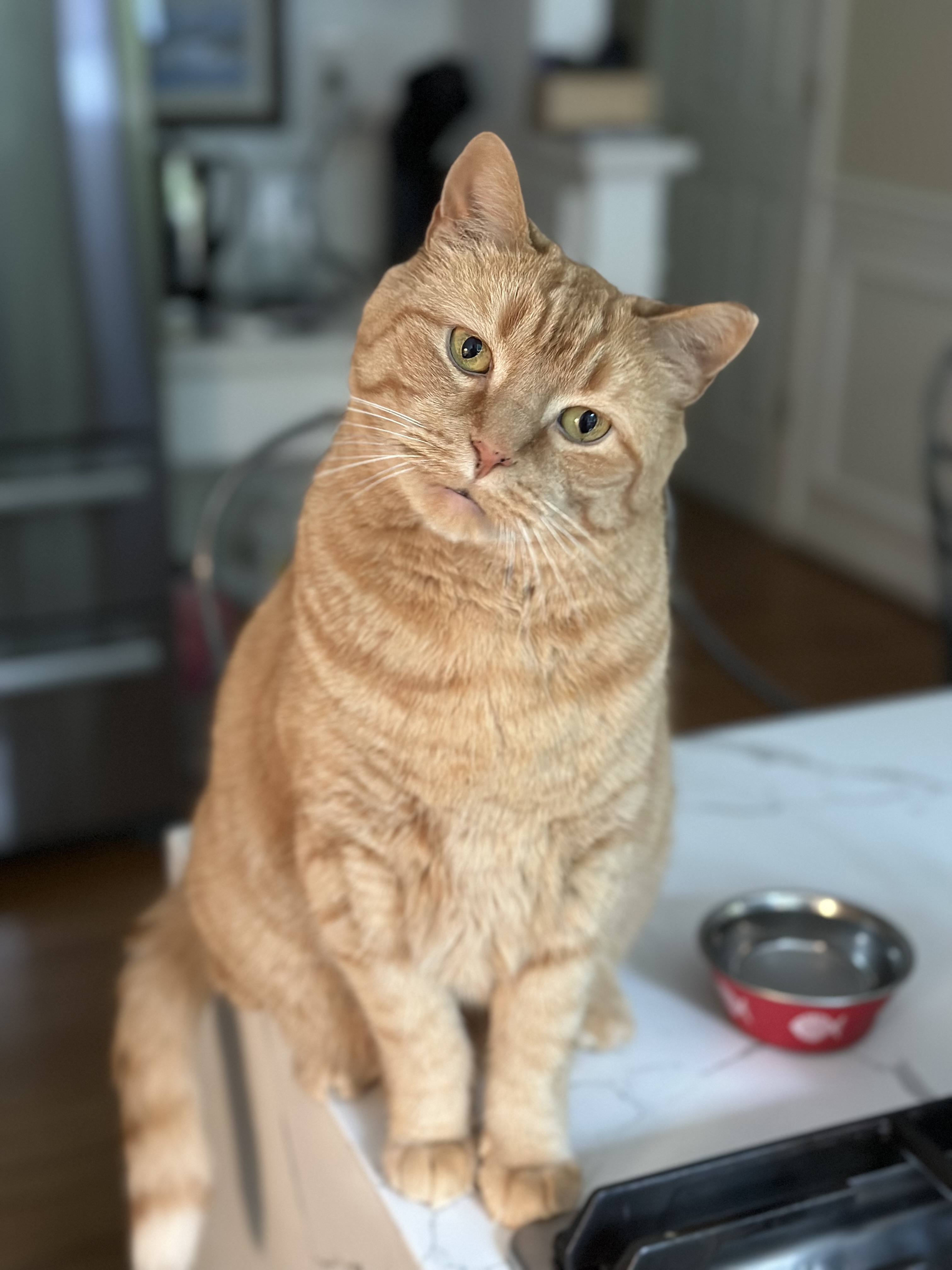
Aside from travel, what do you like to do outside of work and school?
Field hockey is a big part of my life. I played field hockey for the University of Maryland. I won two national championships and three conference championships. I'm still very involved in that part of my life. That community is very important to me, and it gives me a good balance away from science. I coach a high school team in Towson right now. I go back to a lot of Terps games, and I play when I can. I also like spending time outside—hiking, camping, skiing. I guess the last thing I’ll say is that I have an orange cat. He’s the sweetest and I love him.
Michael Macon
Can you tell me a bit more about your education and experience?
After I graduated from Coastal Carolina University, I went to the University of Illinois to study natural resources and environmental science. I was working on one of the oldest natural fisheries projects in the nation, trying to map substrate habitat to fish community structure using side-scan sonar. I faced several hurdles, the biggest being a back injury that kept me from focusing on my coursework and doing field work in the summer, and I ended up not completing my master’s [degree].
I bounced between fishery jobs before I was picked up by the U.S. Fish and Wildlife service in Northern California to work on Pacific salmon. That was really fun. I did a lot of whitewater rafting for work, and we did stream surveys in remote areas in the mountains. I got to visit parts of California most people have never seen. After that, I started working for the State of California on resource management and water quality standards related to fish protections. I worked for the state for close to five years and then decided to go back for my master’s at University of California, Davis.
What brought you back to Maryland?
When I finished my master's degree, I wanted to leverage it. That's what brought me to Maryland Sea Grant and the State Science Policy Fellowship. I thought it would be a great way to expose myself to new environmental issues, but also to learn how policy is driven in a different sector of the United States, because it's never the same between states. The more exposure I get, the more effective of a policymaker I’ll be in the future. My dad always told me, don’t become too specialized. Be a jack-of-all-trades. Be well rounded. That way, you have more flexibility with where you go, what you do, and who you work with. I also wanted to explore living closer to my family, so this is kind of a one-year experiment to see if living in Maryland is personally fulfilling.
Have you worked in policy before?
I did an internship in summer 2022 with the legislative affairs office at the California State Water Board. I learned a lot about the legislative process, how regulatory agencies engage with the legislature, how they can have some say in laws that are being passed, and how they get their voices heard. It was fun to learn about that process, and it expanded my horizon on how policy is framed and structured.
Why do you think science policy is an important field?
For me, it's about how we use science to answer bigger questions—not just to forward science but to put [science] into management and into practice. [We can] link the problems we are seeing now to their causes and start to implement best management practices to reduce and mitigate those impacts for a cleaner environment and healthier ecosystems. That's where science policy lives. It’s at that nexus of management decisions and science.
I think we're in this critical time where we need sound science and good communication. We need be very clear about what the science says, while acknowledging the shortcomings of science. Policy must navigate all of that. I feel like we are doing better today than we were yesterday. If we make decisions based on sound science now and understand that science is always improving, it becomes easier to adapt policy in the future as the science is updated.
Have you found that your math background applies to your current work?
It can, especially with the shift toward modeling. It makes me more literate when it comes to modeling results and understanding statistics. This allows me to ask more probing questions, understand new concepts, and engage with people a little quicker than if I did not have that math background. I think that's where it really benefits me.
As you’ve moved further into the policy realm, has your approach or outlook changed?
The more I’ve learned, the more complex it has gotten. That’s always a humbling experience, but it also makes it fun and exciting. The policy realm is a lot like a puzzle where you have to navigate different levels of stakeholders, plans and targets, budgets, staffing, and what's feasible. In Maryland, we have the Climate Action Plan, greenhouse gas reduction targets, and various wildlife plans. We have to operate within the confines of these plans and targets.
I think that was the biggest shift for me, realigning how I think about these issues. It’s not just what’s the most scientifically correct approach, but also what’s the most practical and feasible. I had to start thinking big picture, considering various socioeconomic issues, and thinking about political will and political climate. There’s no one answer fits all. You really have to work with people and within your limitations to achieve the best results.
I’m also a big advocate for outreach. A lot of times, public comment is the last step of the process. I think you get greater public buy-in when you work closely with local communities and get them engaged in project design. How do we better engage with people and get them to engage [with us]? People are busy. It’s tricky.
What are you hoping to gain from your experience as a fellow?
There’s plenty I want to get out of it. My intent for coming to Maryland was to stay within the realm of water resource management but see it from a different perspective. I’m excited to get more involved in groundwater and habitat restoration. In California, a lot of issues are about navigating the water supply. In Maryland, it’s more about water quality. I’m excited to learn more about how we’re managing water quality into the future and how we’re being proactive with fitting into Maryland’s climate goals. Maryland has some of the most progressive climate targets in the nation. They set themselves up for a very tough task, but if and when they accomplish it, it will be exciting to see how they’ve done it and to be involved in that process. That will be something I can carry forward into future jobs.
I’m also excited to explore the city of Baltimore, which I’m living in for the first time.
Speaking of future jobs, do you have any idea what you’d like to do next?
I think I want to stay on the regulatory side of the coin, but I might want to work with the legislature—making sure potential bills are the most relevant, applicable, and practical. I could see myself working for an NGO in the future, advocating and commenting on bills or writing letters of support. I’m still figuring it out, but I know I want to work on the edge of science and policy. That’s why I think regulatory bodies like the Maryland Department of the Environment and the California State Water Board really appeal to me. I’m able to work directly with scientists and incorporate the results of their work to develop policy decisions that are practical and realistic but also modern and scientifically sound.
The regulatory realm is where I find my sweet spot, but this fellowship and recent work are giving me more experience and understanding of the system and how I can go about making change.
See all posts from the On the Bay blog
